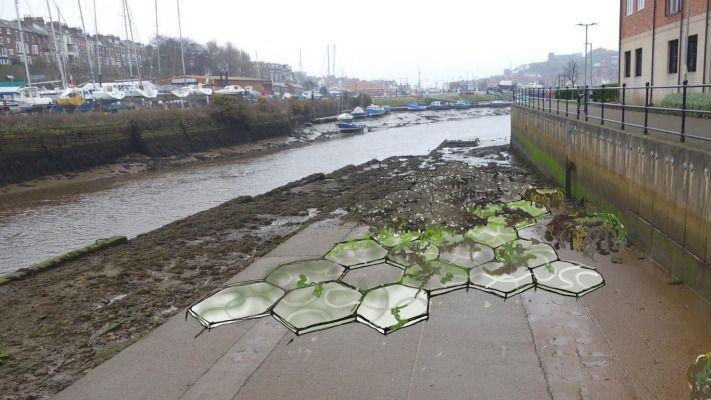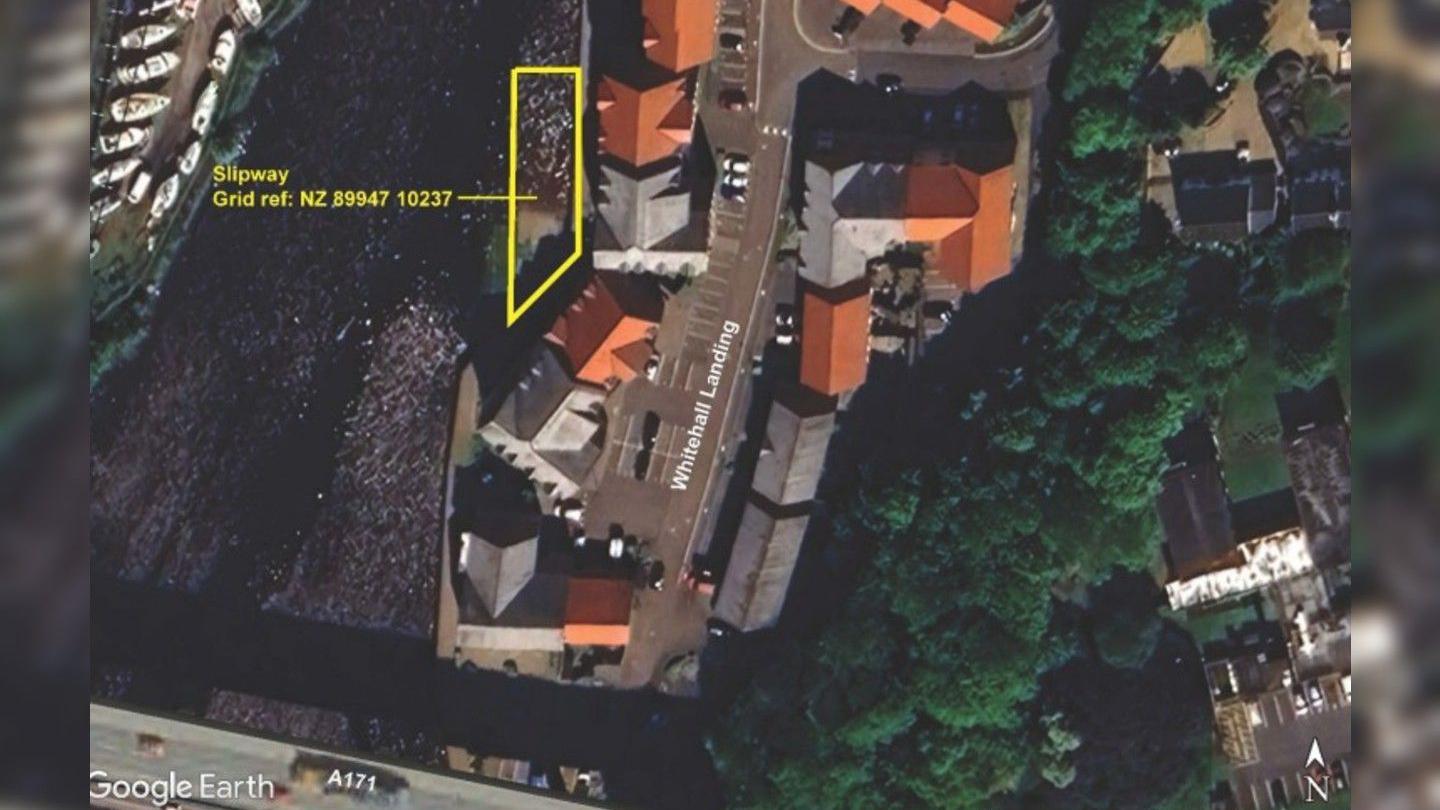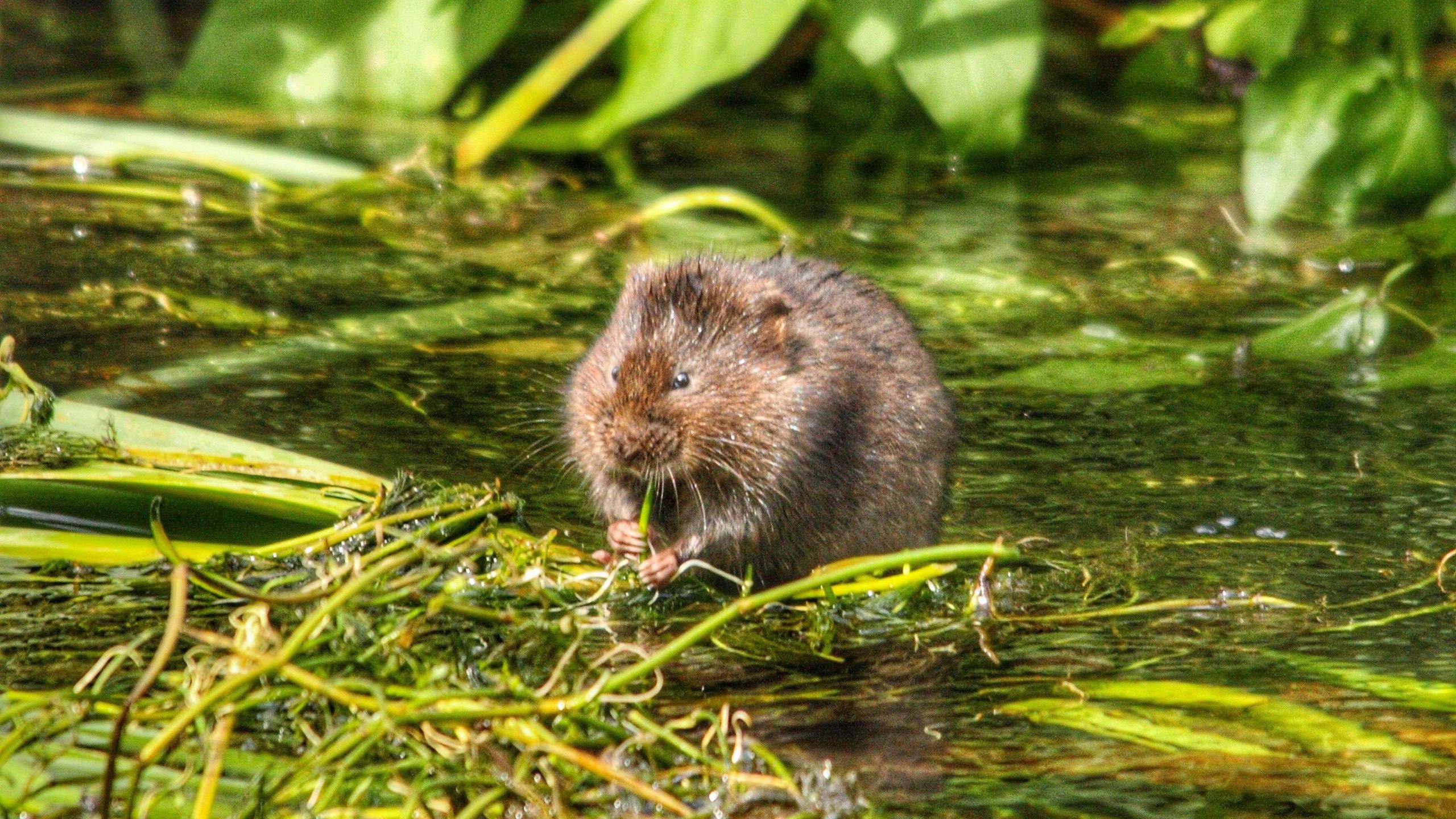Plans for bio-receptive tiles to help coastal wildlife

The charity wants to build 95 bio-receptive tiles on the disused slipway
- Published
An environmental charity has submitted plans to install bio-receptive tiles in an estuary to rebuild habitats for coastal wildlife.
Groundwork North East & Cumbria (GNEC) want to build 95 bio-receptive tiles and six artificial rock pools on the disused slipway at Whitehall Landing, in Whitby, near the A171.
It is hoped the plans would help to attract new species and improve diversity of species such as water voles, kingfishers and freshwater pearl mussels.
The charity also wants the project to "help to connect the local community to the river."
The estuary was chosen after being identified as a "heavily modified water body" due to the artificial changes made to it, which has led to reduced habitat diversity.
If approved by North Yorkshire Council, the tiles would be bolted onto the existing concrete surface of the slipway, around 200m to the north of the A171 road bridge at Whitby.

The installation would be just North of the A171 in Whitby
The tiles help to create a more complex texture than the existing concrete, which is expected to encourage colonisation by seaweeds and green algae, followed by other species.
Currently, three types of seaweed are present towards the lower end of the slipway while towards the top end of the ramp, no vegetation was recorded.
No date has been set for North Yorkshire Council to consider the application.
Listen to highlights from North Yorkshire on BBC Sounds, catch up with the latest episode of Look North or tell us a story you think we should be covering here, external.
Related topics
Related internet links
- Published21 August 2024

- Published27 November 2024

- Published22 November 2024
